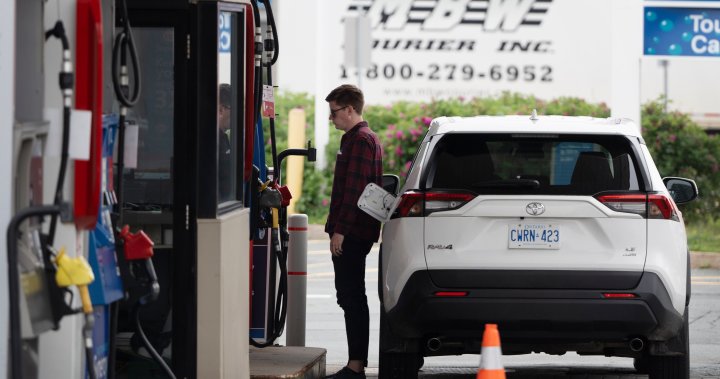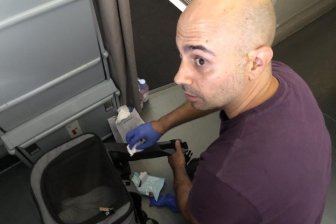Carbon price rebate rolling out to more Canadians. How much will you get?
Many more Canadians will begin receiving Ottawa’s climate action incentive payment starting Friday.
Between July 14 and July 21, Canadians in the Maritimes, as well as in Ontario and the Prairies, will get tax-free payment through the Canada Revenue Agency, which is meant to offset the cost of federal pollution pricing.
New this year, residents in Newfoundland and Labrador, Nova Scotia, and Prince Edward Island will be eligible for the payments. That is due to the fact Ottawa implemented its federal fuel charge in those provinces on July 1.

New carbon tax officially in effect
Until now, the climate action incentive payment only applied to residents in Alberta, Ontario, Saskatchewan, and Manitoba. Provinces that don’t have a carbon pricing plan that meets federal standards are subject to the federal pollution pricing system.
The federal carbon pricing plan also includes a 10 percent supplement for residents in small and rural communities.
Ottawa has said 90 percent of direct proceeds from the federal fuel charge are delivered to individuals and families through pollution price rebates, which are made to eligible individuals every three months. The remaining 10 percent of proceeds are provided to emissions-intensive, trade-exposed, small- and medium-sized enterprises and Indigenous groups.

Canadians to still receive carbon pricing rebate quarterly amid cost increase
The federal government has said pricing carbon pollution is “the most efficient policy” to reduce greenhouse gas emissions and drive clean innovation. The latest National Inventory Report of Canada’s emissions shows that emissions fell by 7.4 percent between 2019 and 2021.
How much money will I get?
According to projections by the finance ministry, eligible Canadians are expected to receive the following:
In Alberta, an individual can expect $193, a spouse or common-law partner $96.50, and $48.25 per child under 19.
In Manitoba, it’s $132 for an individual, $66 for a spouse or common-law partner, and $33 per child under 19.

Can Atlantic provinces keep up with the demand for EVs?
In Ontario, an individual can expect $122, a spouse or common-law partner $61, and $30.50 per child under 19.
In Saskatchewan, it’s $170 for an individual, $85 for a spouse or common-law partner, and $42.50 per child under 19.
In Newfoundland, an individual can expect $164, a spouse or common-law partner $82, and $41 per child under 19.

Gas prices to rise as second carbon tax comes into effect
In Nova Scotia, it’s $124 for an individual, $62 for a spouse or common-law partner, and $31 per child under 19.
In Prince Edward Island, an individual can expect $120, a spouse or common-law partner $60, and $30 per child under 19.
In New Brunswick, it’s $92 for an individual, $46 for a spouse or common-law partner, and $23 per child under 19.

Economists say carbon price hikes should go forward despite the high cost of living
Ottawa says because New Brunswick requested the federal carbon price more recently, households will receive their first pollution price rebate payment as a double payment in October 2023, with a second quarterly payment in January 2024.
Where will I see the payment?
If you get your tax refund by direct deposit, you will also get your climate payment by direct deposit, the government said.
It can take up to 10 business days for a payment to arrive by mail.
If you have a spouse or common-law partner, only one of you will get the credit for the family. The credit will be paid to whoever’s tax return was filed first. No matter which one of you receives the credit, the amount will be the same, Ottawa said.

Liberals defend carbon pricing, potential tax hikes as ‘most effective method of fighting climate change
Furthermore, if you have a tax debt with the Canada Revenue Agency, the carbon pricing payments will be applied to amounts owing for income tax balances, or amounts owing to other federal or provincial government programs, Ottawa added.
© 2023 Global News, a division of Corus Entertainment Inc.





